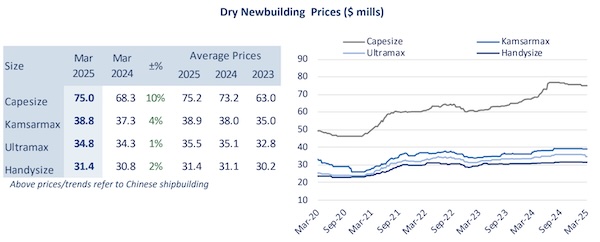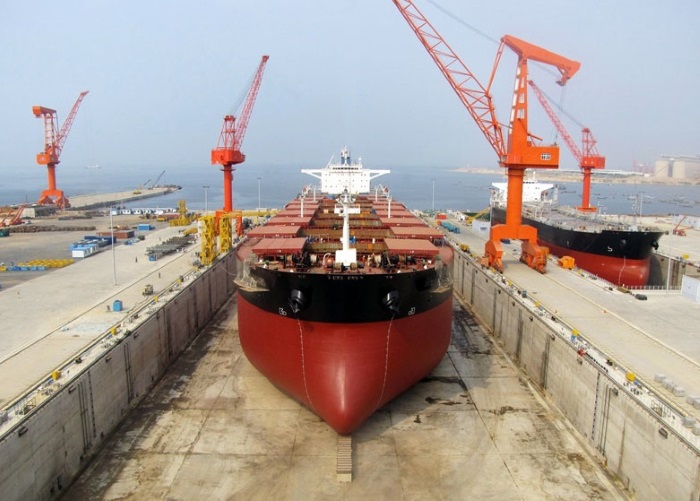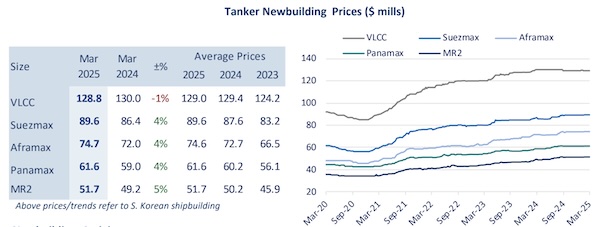
In a period when shipbuilding capacity should be expanding rapidly to cater for the vast decarbonization needs of the shipping industry, disruptive policies by the US could prove damaging to the overall market. In its latest weekly report, shipbroker Xclusiv said that “the U.S. Trade Representative’s (USTR) recent proposal to impose steep port fees—up to $1.5 million per call—on vessels built in or operated by China has ignited a fierce debate across global industries and trade blocs. This measure, justified by a Section 301 investigation into China’s alleged manipulation and dominance in the shipbuilding and maritime sectors, is being touted by some as a bold step toward economic sovereignty. However, the broader consensus among industry stakeholders appears to be one of deep concern, with critics warning that the policy may result in unintended consequences far graver than the issue it seeks to address”.

Source: Xclusiv
According to Xclusiv, “from the outset, the hearings at the USTR showcased a divided response. While some groups—such as the Alliance for American Manufacturing and certain U.S. offshore marine service operators—voiced strong support, citing national security and industrial independence, the vast majority of industry representatives voiced opposition. The World Shipping Council, the National Council of Farmer Cooperatives, the American Petroleum Institute, and energy exporters all highlighted one common concern: rising costs and logistical disruptions. Their fear is not theoretical; it’s rooted in the fact that Chinese-built ships represent a substantial portion of global maritime capacity—nearly 30% of container fleets and close to half of dry bulk carriers. The petroleum and energy sector, in particular, has sounded alarm bells. Chinese-built tankers currently carry a significant portion of U.S. oil and refined products. The American Petroleum Institute warned that the proposed fees could slash U.S. crude exports by nearly 20% and saddle consumers with up to $30 billion in additional costs annually. Ethanol exporters, facing a record year, also anticipate reduced competitiveness and increased volatility if the measure moves forward.

U.S. ethanol prices have already begun to fall amid the policy uncertainty. Shipping companies, traders, and port authorities argue that the fee structure, if enacted, will cascade down supply chains, affecting not just exporters, but consumers. With Chinese-built ships responsible for nearly one-fifth of U.S. port calls in February 2025, the scale of exposure is significant. And because larger carriers like Maersk, MSC, and ZIM rely heavily on Chinese-built tonnage, the fees would likely distort the competitive landscape by privileging operators with non-Chinese fleets—if such capacity can even meet global demand”.

Source: Xclusiv
“Ultimately, the USTR’s proposal underscores a very real and pressing problem: China’s dominance in the shipbuilding industry and the strategic vulnerability this creates. However, the proposed remedy risks being overly blunt and economically disruptive. While a recalibration of trade and industrial policy is warranted, it must be strategic, multilateral, and sensitive to the complex interdependencies of the global economy”, Xclusiv concluded.
Nikos Roussanoglou, Hellenic Shipping News Worldwide